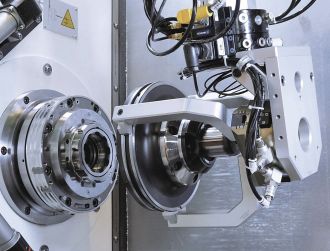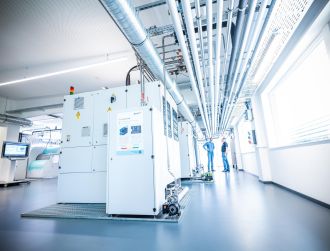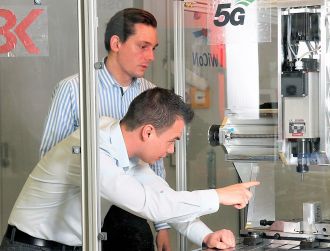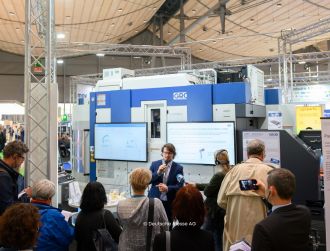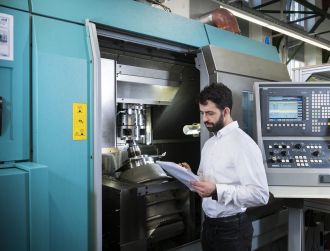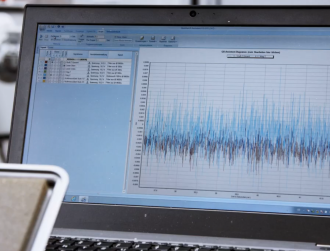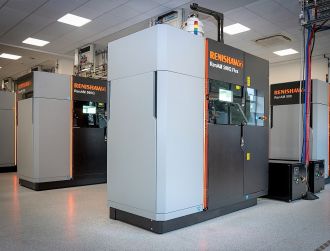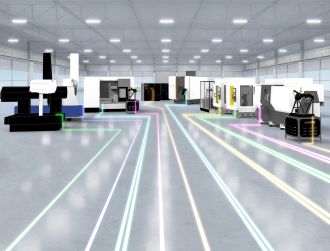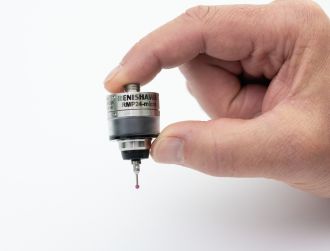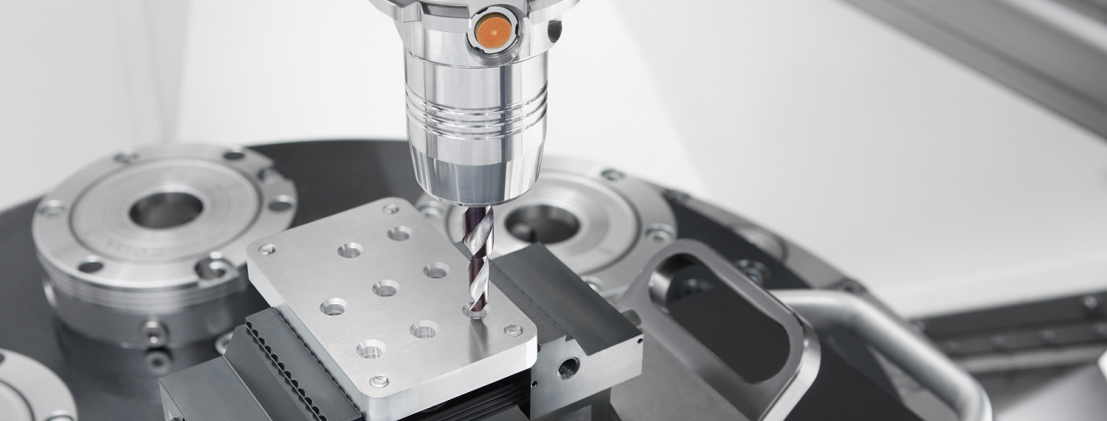
EMO Hannover paving the way for zero-defect manufacturing
Many production companies are facing a dilemma. Often, the only way that they can survive is to adopt zero-defect manufacturing that offers greater cost-efficiency while using less energy. This can be achieved using intelligent clamping technology – which has now developed into a machine within a machine. It makes use of sensors to detect and correct anomalies and malfunctions.
EMO Hannover is supporting the industry as it moves towards zero-defect manufacturing. Exhibitors such as Hainbuch from Marbach and Schunk Spanntechnik from Mengen will be showcasing exciting solutions at the World's Leading Trade Fair for Production Technology from 18 to 23 September 2023, in which the digital transformation is set to play an important role.
“The future is cyber-physical.” This was the slogan that VDMA Präzisionswerkzeuge and Maschinenbau-Institut from Frankfurt am Main used on its invitations to the clamping device forum in Düsseldorf in 2020. The forum was well-attended, attracting production experts from industrial companies and research institutes who came together to discuss the advantages of clamping devices that are now evolving into cyber-physical equipment thanks to digitalization.
The race towards a digital world
But what became of this mega-trend? Was it merely a flash in the pan? For the manufacturer Schunk, it proved to be the starting signal in the race towards a new world of digital production. In March 2020, the company presented a high-sensitivity tool holder with integrated sensor technology at the clamping device forum in Düsseldorf. This holder can even be used as a retrofit in existing machines. There is a lot to be said for this form of digital transformation, says Markus Michelberger, Head of Sales Clamping Technology at Schunk. Integrated sensors in various clamping devices permit the permanent monitoring of process parameters, and their correction in the event of deviations.
“Inline monitoring and adjustment ensure reliable processes and consistent product quality for users,” explains Michelberger. “The automated, real-time inspection of clamping devices or toolholders during production is the basis of predictive maintenance and correction. What is more, it also serves to document measurement and test values in the manufacturing process.” These are reasons enough for Schunk to continue on its digital path. The southern German company places particular emphasis on simple plug-and-play solutions that users can quickly integrate into their systems.
Clamping module that sends real-time data
Highlights at EMO Hannover 2023 will include a new electromechanical clamping module with fully integrated sensor technology, and a smart hydraulic expansion toolholder that provides real-time data from the tool itself and detects wear at an early stage. This intelligent tool holder enables reliable machining, extends tool life and reduces scrap levels. “Digitalization has arrived in machine tools in the form of the itendo² intelligent tool holder – which provides high-precision inline control,” says Michelberger. “Its advantages can be harnessed in all industries where the quality of the machined surfaces is of paramount importance – in precision drilling and in cases where high surface quality is required, for example.”
Michelberger believes that the electrical quick-change pallet system controlled via IO-Link is unique because it can generate identical forces to comparable pneumatic clamping systems, but with no increase to its installation space. In addition, Schunk has fully integrated the sensor technology into the module. No external sensors are required, meaning that no interference contours arise. Michelberger: “The NSE3-PH 138 clamping module applies identical pull-down forces to the conventional system with the same dimensions. This technology has just been launched on the market and can rightly be deemed 'disruptive'.”
Hainbuch takes a different approach to zero-defect manufacturing. Stefan Nitsche, Director Main Products, describes the basic requirements for clamping devices: they must be impervious to dirt and require almost no maintenance. They are characterized by their very high rigidity and holding forces, their high concentricity accuracy with deviations of no more than five micrometers, and minimal centrifugal losses.
Fast and precise clamping chucks
Secondly, Nitsche recommends that users always use the right clamping device for the workpiece, even if this increases the setup effort. For example, I.D. clamping is the best solution for 5-sided machining. However, if the workpiece does not have the necessary clamping bore for this, Nitsche believes that O.D. clamping with chucks is the ideal solution. Nitsche: “We make use of our Centrotex quick change-over interface and Docklock zero-point clamping system to keep manual setup times to a minimum – under one minute with our system instead of 30 minutes or so using conventional means – and change-over accuracy down to no more than three microns.”
Hainbuch’s measuring intelligence, which enables in-line process control, has been in successful use for over 15 years now; the company describes it as its third “zero defect” component. It is used to check the pre-machining clamping diameter down to the nearest micrometer, and to detect the workpiece system. “In addition, the actual clamping force on the workpiece is continuously measured. As components gain in complexity, this represents a crucial process stability factor,” Nitsche explains. “We will be showcasing all three technologies and products live at EMO Hannover. Using Centrotex or Docklock, it's child's play to change over our clamping devices in seconds with microscopic precision, or to use our IQ clamping devices for high-precision clamping while simultaneously performing various measuring operations.”

